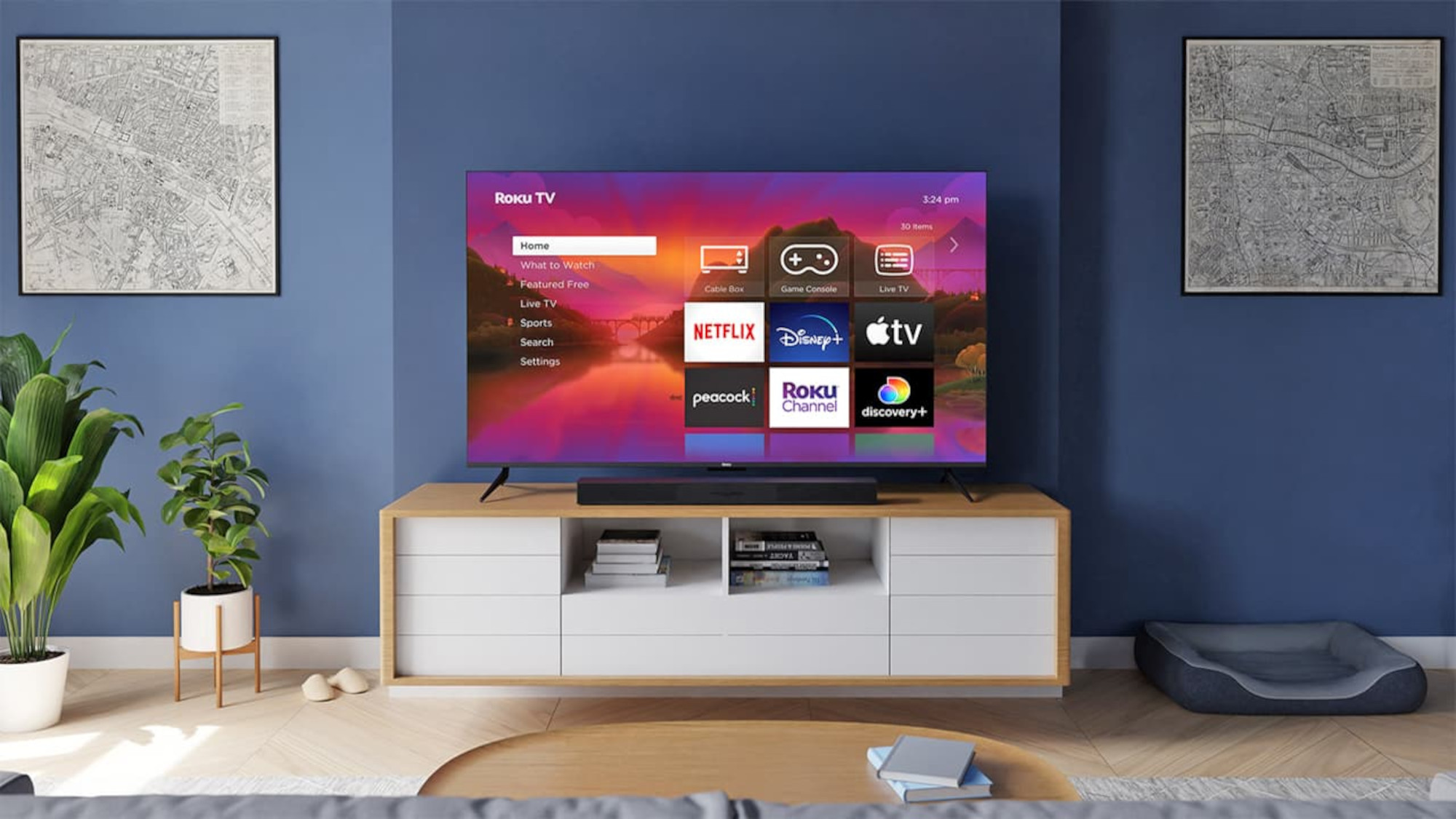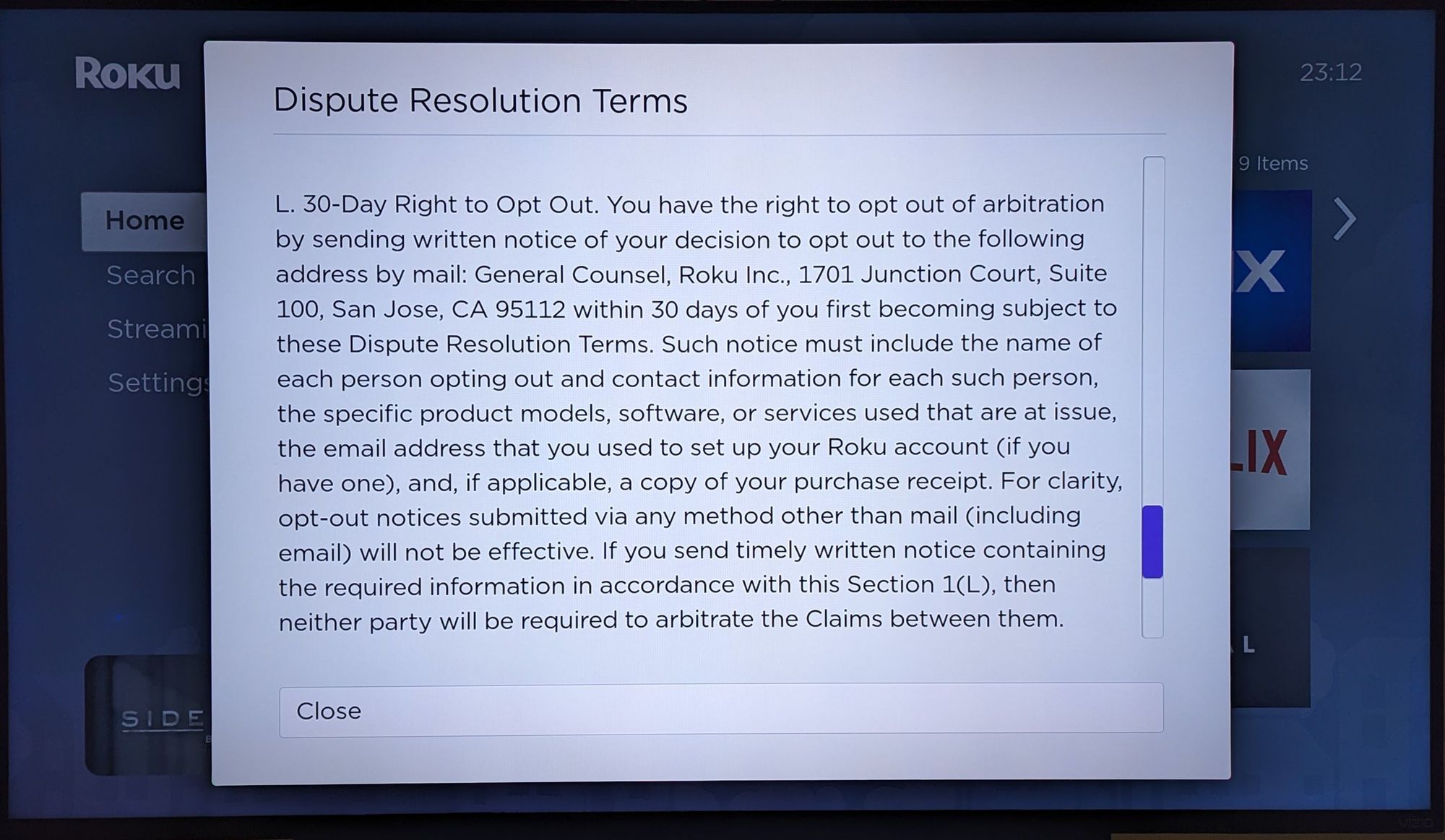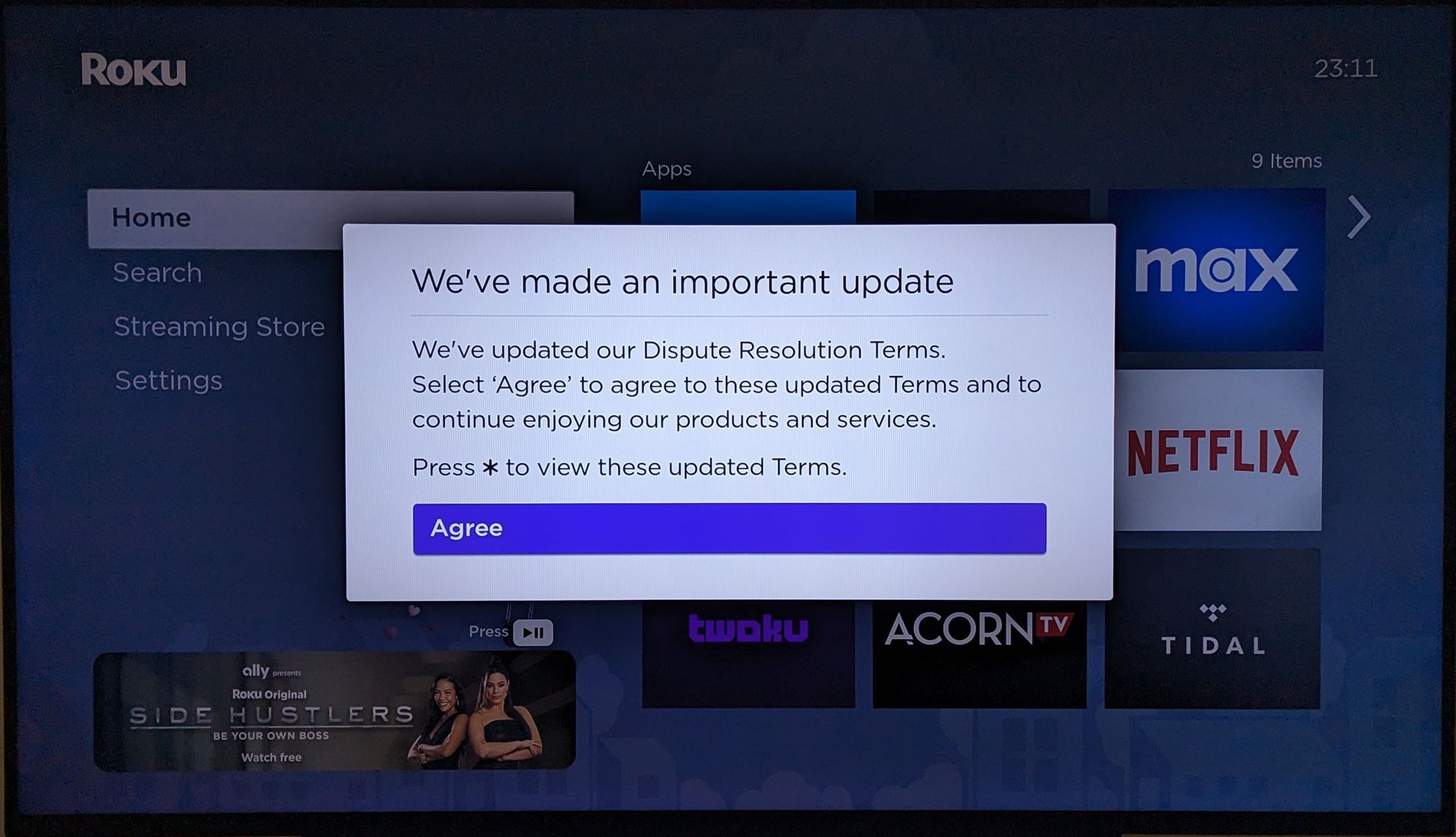
Roku TVs and streaming devices are being unceremoniously paused for many users as the company purportedly rolls out a new policy that aims to make it even more difficult to strike up varied legal grievances against it.
The news, which comes via TechRadar, suggests that Roku is literally halting the use of devices until users accept the new terms and conditions. This has led to immense vitriol from many Roku users that has spread as far as Roku’s Community support page.
The policy causing all this discord is a new dispute resolution guideline set in place by Roku on Feb. 20 that requires users to pursue their legal complaints through arbitration. But, that’s not all, as said legal woes must also be dealt either over a call or in person with Roku’s lawyers before it can even go to arbitration.
Roku users first started seeing the terms and conditions pop up on devices starting March 1. Although not every user has been affected by this user agreement service pause, it sets quite a bad standard for the future as manufacturers could make it even more difficult to use TVs and streaming sticks without being pushed to agree to something that’s potentially unethical or unwarranted.
Roku’s contentious new dispute resolution terms

Users on Roku’s community forum share images of the new Dispute Resolution Terms, which only gives users the ability to agree to the new guidelines — there is no “Disagree” option or even a simple “Close” button. This means that users affected by the update are essentially funneled into accepting the new terms before being able to access content on their Roku TV or streaming stick.
Many are now advocating to stop buying Roku products and to get rid of those already in the household, as the terms seem somewhat unfair to Roku customers. If accepted — and again users must accept if they want to use their Roku Plus Series 4K QLED TV or Roku Streaming Stick 4K — it means that users can't join a class action lawsuit against the TV manufacturer.
Tom's Guide reached out to Roku for comment. A company spokesperson said, "Like many companies, Roku updates its terms of service from time to time. When we do, we take steps to make sure customers are informed of the change."
Sign up to get the BEST of Tom's Guide direct to your inbox.
Get instant access to breaking news, the hottest reviews, great deals and helpful tips.
Roku also explained that these updates to its dispute resolutions are in line "with changes that many companies have been making recently." Emails were sent to some customers, but not all users received them.
Several users claim that rebooting the Roku device has no effect on the suspended usability. Even so, there are ways to get around the setback and opt out of these new guidelines, as per Roku’s own terms.

How to opt out of Roku's new dispute terms
Want to watch Hulu's new (and highly praised) "Shogun" on your Roku device, but don’t want to accept the new terms and conditions? First, you are required to click through the prompt on your screen to proceed and then handle the rest in writing, as listed below:
- Ready a letter detailing all of the individual customers who want to opt out of the new dispute clause with their contact info provided.
- This letter must also include all used Roku software, services, and model names.
- You’ll also want to include the email associated with your Roku account, as well as "if applicable, a copy of your purchase receipt."
- Mail the letter to the following address: General Counsel, Roku Inc., 1701 Junction Court, Suite 100, San Jose, CA 95112
Although it’s nice to know there’s a workaround (to some degree) against Roku’s new policy, these complaints drive home many of the issues customers are soon having with data privacy and true ownership over the things they buy.
What with ever-evolving technologies, as TVs soon blossom into smart home devices and companies like Walmart gobble up TV makers simply for data and advertising, ownership of not only these devices but also our personal data is of incredible importance and should be taken seriously.
Thus, maybe it's time to get one of the best Google TVs, like the Sony A85L OLED TV or the Hisense U8K Mini-LED TV if you're thinking about moving away from the Roku platform.
More from Tom's Guide

Ryan Epps is a Staff Writer under the TV/AV section at Tom's Guide focusing on TVs and projectors. When not researching PHOLEDs and writing about the next major innovation in the projector space, he's consuming random anime from the 90's, playing Dark Souls 3 again, or reading yet another Haruki Murakami novel.
